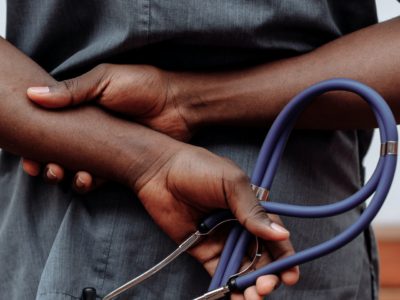Some 26 million people are trapped inside the city of Shanghai as China tries to crack down on the spread of COVID-19. Most people have been confined inside their homes and access to hospitals and food remains scarce. Life has essentially come to a halt, and some of the area’s wealthiest individuals are making plans to leave the city permanently. The city is reporting some 10,000 cases a day, and all positive cases must be hospitalized according to the country’s policy.
Residents have started banning together to help each other during this painful time. Many communities have set up online databases where individuals can learn how to cook with few ingredients, access medical care, and find shelter for their pets if they have to go into quarantine.
The Consequences of Zero COVID-19
China’s COVID-19 policies have attracted widespread condemnation and criticism since the start of the pandemic. The communist country was able to ward off widespread infections when the virus was first discovered in the city of Wuhan in late 2019, but experts say locking millions of people inside their homes isn’t sustainable now that we have entered the endemic phase of the public health crisis.
The virus is now much more transmissible than it was in 2020, but China is refusing to ease its restrictions. That has made it nearly impossible for residents to access basic supplies and medical care in non-COVID-19-related situations.
The communist government has tried to contain the situation, but residents have been taking to social media to share their experiences of what it’s like to live under lockdown.
One video on Twitter shows residents trapped in a high-rise building screaming for help from their balconies after seven straight days in quarantine. Epidemiologist and health economist Eric Feigl-Ding posted the video and said locals are worried they can’t hold out much longer.
Residents in #Shanghai screaming from high rise apartments after 7 straight days of the city lockdown. The narrator worries that there will be major problems. (in Shanghainese dialect—he predicts people can’t hold out much longer—he implies tragedy).pic.twitter.com/jsQt6IdQNh
— Eric Feigl-Ding (@DrEricDing) April 10, 2022
Jia Ruiling’s father has been suffering from severe pain since March 17. He has late-stage stomach cancer, but the local hospital refused to admit him because he doesn’t have COVID-19.
“We begged the hospital to accept him again and again,” Jia said. “At some point my father was in so much pain that he wanted to take his life. What can we do? Please, help us let the central government know.”
Critics say a country as large as China should’ve been more prepared.
“They have been too successful since 2020, so they became complacent,” Jia said. She made it clear that she is not anti-government but that her father’s suffering had made her “very angry”.
But life has become unbearable in lockdown.
“Both the virus and people are changing,” said Chen Xi, a public health expert at Yale School of Public Health. “It is the first time that the subvariant of Omicron, ie BA.2, strikes Shanghai. The unprecedented speed of spreading fast exceeds contact tracing and other conventional public health measures. People also have salient Covid fatigue after two-plus years of stringent health measures.”
Photos and videos posted online show children being separated from their parents if they test positive for COVID-19.
“I’m so upset … This is inhumane,” said one parent after having their child taken away.
Citizens are discouraged from speaking out against the country’s strict lockdown policies and taking a stand against the government can be seen as treasonous.
However, the local government recently admitted that it has handled the outbreak poorly.
“Our awareness of the highly infectious and insidious Omicron mutant strain was not sufficient, and our preparation for the significant rise in infections was not comprehensive,” said Ma Chunlei, the secretary general of Shanghai’s municipal government. “We sincerely accept your criticism and are working hard to improve it.”
But Deng Zhaoyang said things have still not improved now that the city is entering its second month of lockdowns. His wife and three-year-old son have been stuck in a quarantine facility since the end of March.
“The facility is run by volunteers, and no one seems to be in charge. So much so, we don’t even know when they are going to leave the facility, and no one went to do Covid tests for them either,” Zhaoyang said.
He said he initially supported the country’s lockdowns when the virus first popped up in Wuhan, but he never thought the same thing would happen in Shanghai.
“Before Omicron arrived, it was understandable that those who got it should be sent to quarantine facilities,” he said. “But now most of them only have mild symptoms. Shouldn’t the government adjust their policy accordingly?”
The country’s policies also don’t account for recent changes in how the virus spreads. Medical professionals say bringing the number of COVID-19 cases down to zero is no longer feasible.
Jin Dong-yan, a professor at Hong Kong University’s school of biomedical sciences, said it could still be weeks before the virus is under control. “Even if they can achieve zero Covid with exceedingly high cost, another accident might cause another major surge … Living with the virus is the only viable option,” he said.
Jia received international attention after her father’s ordeal. She said the government recently contacted her and told her they would accept her father into the local hospital.
“They had one requirement though,” she said. “They wanted me to take down my social media posts first. I refused. They did not manage to send my father to the cancer hospital in the end, because they are only a district-level authority, and they were unable to persuade a municipal-level institution after all.”

















